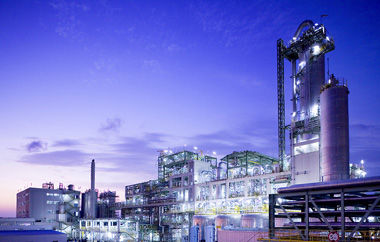Covestro is one of the leading manufacturers of high-tech polymer materials that are essential in modern life. Its core segments are polyurethanes, polycarbonates and coatings/adhesives. Today, the company based in Leverkusen, Germany employs a staff of 16,800 at around 30 sites across the globe.
The main industries served are automotive manufacturing and supply, electrical engineering, electronics, construction and home products, as well as cosmetics, sports and leisure. Polyurethanes are used, e.g., in thermal insulation for buildings and cooling devices, adhesives, as a component of footwear and mattresses, and even in the 2014 official FIFA World Cup football. Polycarbonates are lightweight, tough and easy to shape high-performance plastics that can be used in a wide variety of areas, ranging from car components and laptop housings to stadium roofs.
Being aware of the challenges of using non-renewable carbon in their production processes as well as the difficulties in recycling plastics, the company is striving to find a way to achieve both environmental and social sustainability. This defines operations along the entire value chain from procurement, production, logistics and sales to the use of products and their disposal and recycling.
According to its vision of making the world a brighter place, Covestro is continuously aligning its research and development projects to meet the Sustainable Development Goals of the United Nations. The company also aims at having all of its suppliers comply with its special sustainability requirements. Also by 2025, Covestro wants to reduce its specific greenhouse gas emissions – generated per metric ton of product produced – by 50 percent compared to the base year 2005. The company has furthermore pledged to help improve the living conditions of ten million people in underserved markets, primarily in developing countries and emerging economies, by the year 2025.






